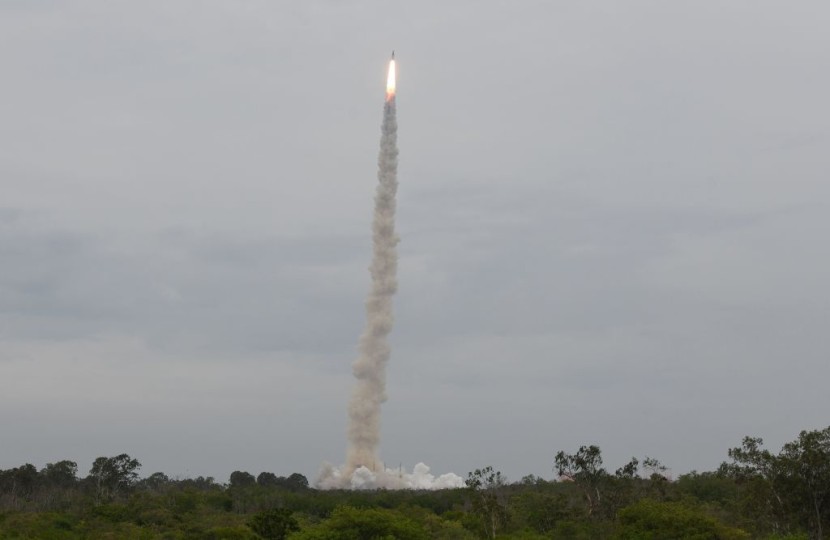
India has successfully launched its first-ever privately-made rocket made possible by startup Skyroot Aerospace's Vikram-S with the support of the Indian Space Research Organization (ISRO), marking a historic takeoff on Friday.
Prior to the momentous event, India's space industry has been dominated by the state-run ISRO, but the startup has since opened up the sector to private companies and to more opportunities. The company said that the latest rocket launch will help test and validate the majority of the technologies in the Vikram series of orbital class space launch vehicles.
Private-Made Rocket
The Vikram-S rocket weighs roughly 546 kilograms and was launched from the country's Sriharikota spaceport. It was able to reach an altitude of 89.5 kilometers. The mission also symbolizes not just the nation's first private rocket launch but also the "potential" for a "new India."
A historic moment for India as the rocket Vikram-S, developed by Skyroot Aerospace, took off from Sriharikota today! It is an important milestone in the journey of India’s private space industry. Congrats to @isro & @INSPACeIND for enabling this feat. pic.twitter.com/IqQ8D5Ydh4
— Narendra Modi (@narendramodi) November 18, 2022
The startup company was launched in 2018 and is based in the southern tech hub of Hyderabad, founded by former ISRO engineers. It was able to raise $68 million in funding as revealed by data firm Tracxn, as per CNN.
Skyroot Aerospace became the first startup to enter into an agreement with the ISRO last year to use the Indian space agency's expertise and access its facilities. The launch comes as worldwide, the space race in the private sector continues to pick up, with many budding companies making momentous leaps in history.
The private company's rocket has the capability of reaching a speed of Mach-5, which is five times the speed of sound, and can carry a payload of 83 kilograms to an altitude of up to 100 kilometers. Skyroot Aerospace set a target of 80 kilometers for its first launch, which is a benchmark that some agencies define as the frontier of space.
According to Reuters, the Karman line, which was set by an international aeronautics body as defining the boundary between our planet's atmosphere and space, is found at a 100-kilometer altitude.
Read Also : James Webb Telescope Photo: Birth of Star Captured in Striking Image of Space 'Hourglass'
India's Space Frontier
Video footage of the launch showed Skyroot Aerospace's rocket taking off from the space center as it left a massive plume of smoke and first in its wake. The rocket splashed down in the Bay of Bengal roughly five minutes after it flew, said officials.
The chair of the Indian government agency that coordinates private-sector space activities, Pawan Goenka, said that he was happy to announce the completion of Mission Prarambh. The private company responsible for the rocket was founded by Pawan Chandana and Bharath Daka.
Skyroot Aerospace seeks to cut development costs by up to 90% compared to existing platforms to launch small satellites. The company expects to achieve that objective by using a rocket architecture that can be assembled in under 72 hours using composite materials.
Vikram-S is a single-stage fuel rocket that was made in order to test many systems and processes in the private company's project prior to the launch of the Vikram-1 rocket. The latter is scheduled for next year. The latest launch was a sub-orbital one, which means that it reached outer space but will not orbit our planet, Indian Express reported.
© 2025 HNGN, All rights reserved. Do not reproduce without permission.








